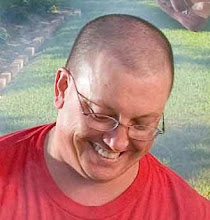Per the request of one named John, I agreed to roast some coffee in my Gene Café and ship it back to him for comparison. This always makes me nervous, especially when people send the coffee to me ... "what if screw up and waste their coffee?" As circumstances would have it, the subject coffee received for this experiment: Yemen Mokha Sana'ani. Great! Last time I roasted a Yemen, I screwed it up!
Since the beginning of the year, life has been frenetic, especially with respect to work. As such, I did not get a chance to roast for John on the weekend before last and sent him an apology to that extent, promising to get to it this past weekend. I used the time in the interim to read up on the coffee, do some research and decide how I was going to roast the coffee in the Gene Café with respect to profile; determine the goal and work backwards.
I had not touched the Gene Café since last July when I did two roasts for someone else that wanted to compare the Gene Café to their SC/TO. As such, I decided it would be a good idea to dig the Gene Café out from under all the tools and such and give it a few practice runs to refresh my memory. Cleaned it up including intake and exhaust, ran it empty at 482ºF to test and sure enough it heated up to 482ºF in 5 minutes flat. Good. A couple batches of Tanzania Peaberry (with some coaching from Lynn) were roasted and they came out quite good. I did notice though, that with the beans in the roaster, the Gene Café was topping out at about 471ºF. Hmmmm. I only need it to do one more roast …
Saturday, whilst getting ready to roast in the RK Drum the phone rings. I answer and a voice asks, “So what do you think of the Behmor?” It was Doug! A home roasting veteran who has shared a lot of his roasting experiences and insights; I always enjoy learning from a veteran and a call from Doug is always welcome! Through the course of conversation, we discussed the Behmor, RK Drum roasting, Gene Café roasting, moisture content, drying phase, maillard reactions, profiles, etc and even laughed a lot. Since I had to roast about 30 pounds of coffee on Saturday, I decided to extrapolate on some of Doug’s information, applied it immediately and achieved some very good results. The point of all this is that I was constantly thinking about how I was going to roast that Yemen Mokha Sana'ani for John. I wanted it to be perfect!
Sunday, after church and Popeye’s chicken, the moment of truth arrives; it is time to roast the Yemen Mokha Sana'ani. Further procrastination ensued; print labels, printing roasting sheet, read emails from this list, etc. At the moment I sat down in front of the roaster, I changed my mind about the profile again. Dumped the beans in and started the roast with the following predetermined profile:
300ºF for 5 minutes
442ºF for 4 minutes
482ºF until 1st crack
456ºF until City+
Pull and cool externally.
All is progressing nicely; initiate the phase for 482ºF. I hear the thermostat kick the switch and look up to see that the roaster has topped out at 465ºF. NO! Mustering all of my technical prowess, I gave the roaster a good, “Whack!” Huh, that didn’t help; maybe it will hang on and I can get a decent roast. Monitoring by aroma, I was reminded of why I so thoroughly enjoyed roasting with the Gene Café and why it was such a valuable learning tool. Right as 1st crack arrived, the aroma turned intensely fruited with berry, peach, apricot; candy-like and almost overwhelming. I waited for it to sharpen just a bit, as it does right at the turn to City+ and pulled the roast and cooled externally. Bean munch was intense and confirmed the aroma. I think I nailed this roast! I hope John’s cupping indicates such.
This coffee was also roasted in the RK Drum. I think it came out just a tad darker, although still City+, with the results I expected, but I would slow the roast a bit the next time. All of the berry, peach and apricot were there in the bean munch, but as expected to be different in the drum roasts. The coffee has been shipped, but I did keep some of the roast from the RK Drum and it is resting comfortably.
This morning, I called Tim Skaling about the Gene Café, but also took the time to chat with him a bit too; he is such a nice guy and ever helpful. After some discussion, it was decided that the temperature probe on the inlet side was the problem. That piece can itself be replaced, but it is a bit of a pain. Tim asked me if I could wait a couple of days and I said sure. He is awaiting the arrival of some brand new heater-side assemblies that will make the repair a much simpler task and is going to ship one to me as soon as they arrive.
I learned a lot this weekend and just wanted to share!
Thank you, Tim!
Thank you, Lynn!
Thank you, Doug!
Thank you, John!
Docendo Discimus
Subscribe to:
Post Comments (Atom)

No comments:
Post a Comment